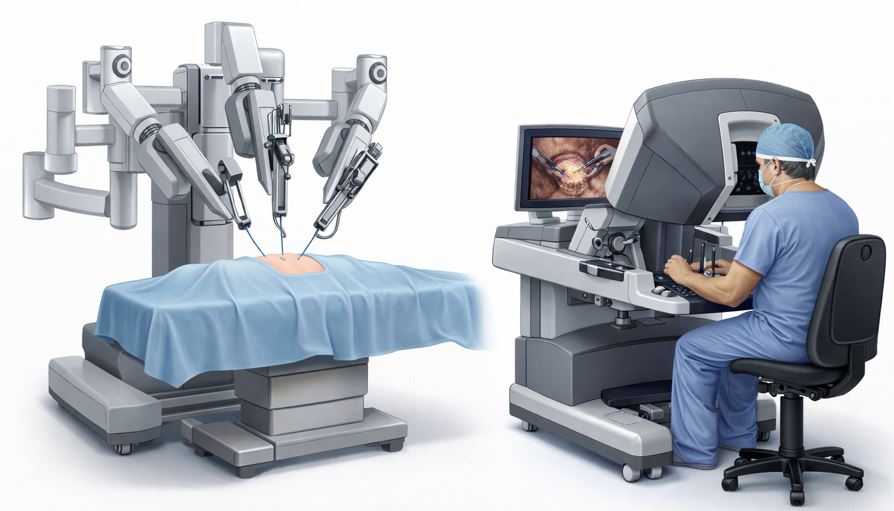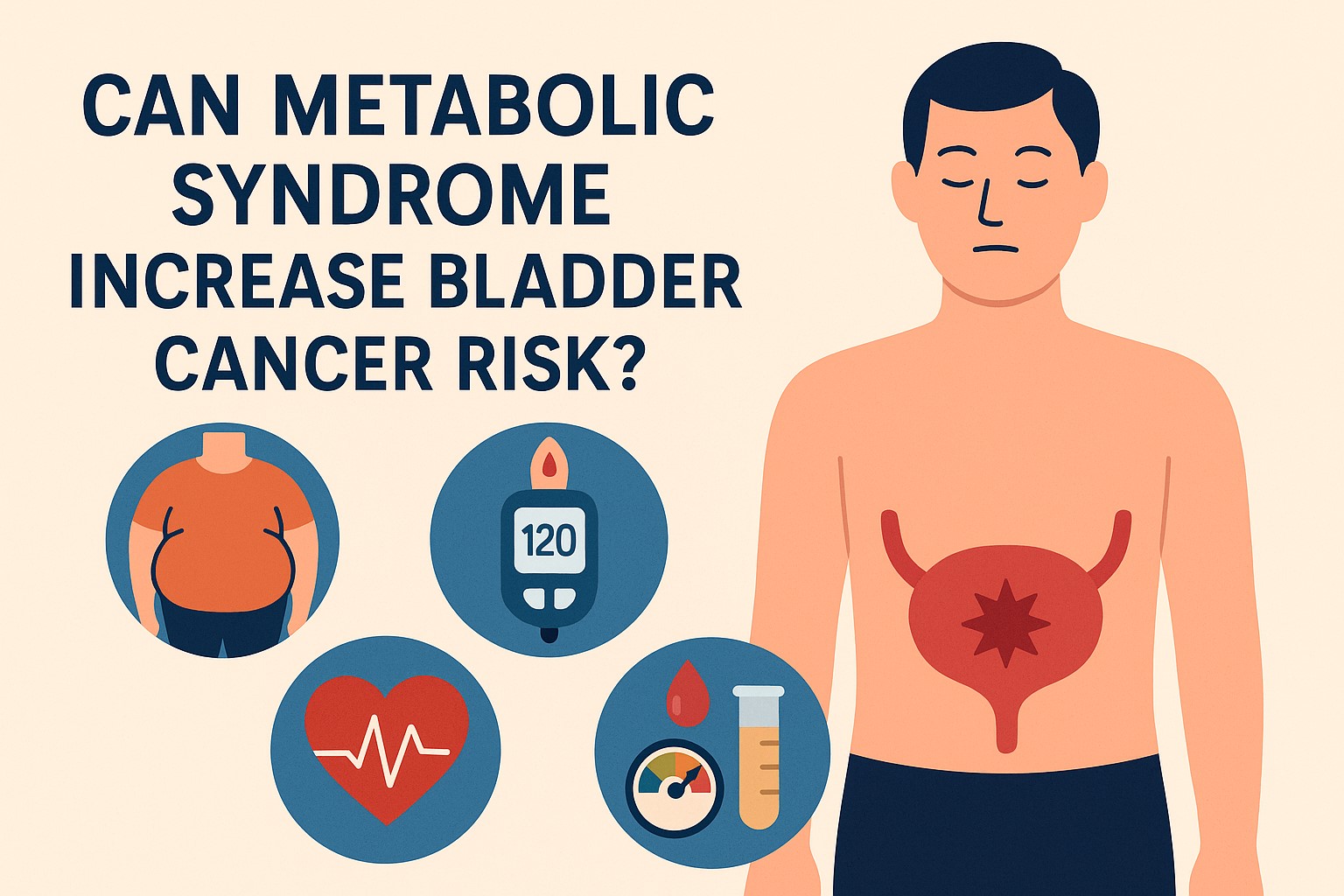Bladder cancer is a common cancer that affects the urinary bladder, where urine is stored. Around 10,000 new cases are diagnosed every year in the UK, and it is more common in older adults, especially men. The most frequent type is called urothelial bladder cancer (UBC), making up about 90% of all cases.
Understanding what increases your risk of bladder cancer can help you take action to reduce it. While some risk factors are unavoidable, many are linked to lifestyle, environment, or occupation, and can be managed.
How Common Is Bladder Cancer?
- Bladder cancer is the 11th most common cancer in the UK.
- In 2022, globally, there were over 613,000 new cases.
- Men are three to four times more likely to develop it than women.
- Most cases are diagnosed after the age of 70.
Who Is Most at Risk for Bladder Cancer?
Several things can raise your risk:
- Smoking (main cause)
- Exposure to industrial chemicals (especially in dyes, paints, and metalwork)
- Polluted water (e.g. high chlorine or arsenic levels)
- Family history of bladder cancer
- Certain medical conditions and treatments (e.g. chemotherapy, radiation)
- Poor diet and low intake of fruits and vegetables
Does Smoking Really Cause Bladder Cancer?
Yes. Smoking is responsible for up to 50% of all bladder cancers.
- Tobacco smoke contains chemicals like polycyclic aromatic hydrocarbons (PAHs) and aromatic amines that damage the bladder lining.
- These chemicals are filtered by your kidneys and stored in the bladder, where they can cause DNA damage.
- Smokers are about three times more likely to develop bladder cancer than non-smokers.
- Even second-hand smoke increases your risk by around 22%.
Quitting smoking can significantly lower your risk, even if you’ve smoked for many years.
Can Water and Air Pollution Increase My Risk?
Yes. For non-smokers, pollution is a major risk factor.
Water pollution:
- Drinking chlorinated water may increase your risk due to trihalomethanes (THMs).
- Swimming in chlorinated pools regularly can also raise your risk.
- Arsenic in drinking water is a known cause of bladder cancer.
Air pollution:
- Long-term exposure to fine particulate matter (PM2.5) and diesel fumes is linked to increased risk.
- Indoor pollutants like paint vapours, gas cookers, and solvents may also contribute.
What Role Does Diet and Lifestyle Play?
- Processed meats and whole milk are linked to higher bladder cancer risk.
- A low intake of fruits and vegetables may reduce your body’s ability to detox harmful substances.
- Some studies show that vitamins A, E, folate and selenium may reduce the risk.
- Alcohol does not appear to significantly increase risk.
Are Certain Jobs More Risky for Bladder Cancer?
Yes. Occupation-related exposure to chemicals is the second leading cause of bladder cancer after smoking.
Jobs with higher risk include:
- Dye and textile workers
- Painters and decorators
- Petrol and diesel engine workers
- Metal workers and welders
- Hairdressers and cleaners
Roughly 20% of all cases may be linked to such exposures.
What Other Medical Conditions Increase Risk?
- Radiotherapy to the pelvis (e.g. for prostate cancer)
- Certain chemotherapy drugs, like cyclophosphamide
- Chronic bladder inflammation, such as with long-term catheters
- Diabetes, especially with long-term use of some oral medications
- Obesity slightly increases risk (by around 10%)
What Can I Do to Lower My Risk?
- Stop smoking – the single most important change
- Drink filtered water if your area has high chlorine or arsenic levels
- Eat a diet rich in fruit and vegetables
- Avoid processed meats
- Use proper protective equipment at work
- Keep a healthy weight and control diabetes
- Get checked early if you have symptoms like blood in the urine
Frequently Asked Questions (FAQ)
Can bladder cancer be prevented?
Not entirely, but many cases are preventable by quitting smoking and reducing exposure to chemicals.
Is bladder cancer only caused by smoking?
No. While smoking is the leading cause, pollution, chemicals, genetics, and diet also play a role.
What are the early warning signs?
- Blood in urine (even once)
- Urgency to urinate
- Pain while passing urine
Always see your doctor if you notice these.
Is bladder cancer more serious in men or women?
Men get it more often, but women tend to be diagnosed later and have worse outcomes.
Bladder Cancer Risk: A Final Word from Mr Edward Calleja, Urology Consultant
Bladder cancer is common but often caught early. Knowing your risks—and acting on them—can save your life. Smoking remains the top risk factor, but pollution, workplace exposures, diet, and other medical conditions also matter. If you see blood in your urine, don’t ignore it.


